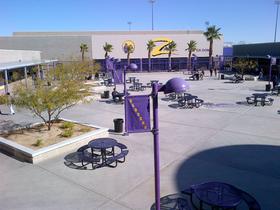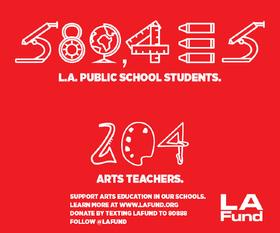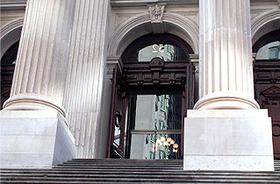As the school year is winding down, many parents are faced with concerns over how to combat “summer learning loss.” This issue, which has been well documented through decades of research, affects low-income kids and students already lagging behind their peers academically the most. In the past, the School District of Philadelphia has offered a number of summer programs through the school system for these at-risk students. However, budget cuts have forced the district to pare down to the bare minimum, which is leaving some students in the cold for the summer months.
Programs Shut Down Despite Proven Benefits
The shutdown of summer programs can be traced to a lack of funding, rather than a lack of benefits. In November 2010, Philly.com did a report on how summer programs offered by the school district helped a record number of students improve their academic performance during the regular school year. During the 2010 summer, more than 60,000 students participated in summer programs through the district, which ranged from kindergarten through high school.
The district found through scores on math and reading tests administered to 3rd-8th graders found that students that attended the summer programs for 16 days or more made significant learning gains. Those that did not participate in summer programs actually lost academic ground during the summer months. In addition, the district’s program that allowed high school students to earn up to three credits in summer school resulted in a record number of students graduating in summer school.
This TEDx Talk discusses public school funding.
Money Gives Out
Unfortunately, a major change in finances impacted the district’s ability to offer students these benefits in just a few short years. According to a recent report at Education Week, Philadelphia Schools is facing a $300 million deficit in the district’s $2.7 billion budget for the 2013-2014 school year. The superintendent for Philadelphia, William R. Hite, Jr., faced some serious decisions on what to cut and what to keep in his district.
First, Hite has tried asking for more funding from the state and city. In addition, he has requested $133 million in labor concessions. However, district officials are uncertain how much of that money will actually come into the district, which has left schools, administrators, and teachers uncertain about what the upcoming school year will look like. At this time, school principals are facing budget cuts to their individual school budgets by 25 percent, which means one principal per school and one teacher for every 30-33 students, depending on grade.
Summer Programs on the Chopping Block
The district has also been forced to put many of its successful summer programs on the chopping block, to the detriment of the students that often need them most. The Philadelphia Public Schools Notebook reports that only 2,000 students will be able to participate in summer programs through the district, much lower than the 60,000 who participated in 2010 and a small percentage of the total number of students in the district, which is around 140,000.
The district originally had big plans for its summer program, which has been dubbed Summer Learning and More (SLAM). With the program whittled to its bare bones this year, students and their parents will have to turn to city-run camps and other options for their summer enrichment. According to the School District of Philadelphia website, offerings at Philadelphia Public Schools will include the following:
- Classes for students who need credit recovery to remain on their graduation track
- Credit courses for high school seniors who need to recover credit or two to graduate
- Transition programs to help students make a smooth switch to the high school environment
- Programs for students who are on Independent Learning Plans, as required by the state
Students who do not fall into one of these categories will have to search outside the confines of the district to find beneficial programs to maintain their academic performance throughout the summer months.
Alternative Summer Programs
Fortunately, there are a number of programs in the Philadelphia area to keep kids learning all summer long. While some programs charge fees that are out of reach for some Philadelphia families, other options are low-cost or even free to Philadelphia school students. First, the school website offers lists of recommended books for all grade levels, to keep students reading throughout the summer months. Many of the classic stories on these lists can be found at local libraries.
In addition, many partner programs will be available, which allows summer camps throughout the city to be offered at school locations. These include City of Philadelphia Youth Programs, which are low or no-cost camps that include free summer meals for qualifying students. Schools will also host After School Activities Partnerships, which provide summer camps through after-school programs. The United Way of Greater Philadelphia and Southern New Jersey will also offer programs throughout the city.
The Notebook also reports that Philadelphia Parks and Recreation Department plans to serve up to 10,000 of the city’s children at day camps across the city. These camps also provide lunch to participants. The Department of Human Services Out-of-School Time initiative will also host day camps, serving about the same number of children through their six-week camps.
School may be out in Philadelphia, but district officials and staff warn parents that summer learning loss is a very real phenomenon that is particularly dangerous for low-income students and those who are already struggling academically. To ensure those students do not fall behind their peers during summer vacation time, many programs are available for Philadelphia youth, despite the fact that the school district cannot afford to offer many options on its own.
Questions? Contact us on Facebook. @publicschoolreview















